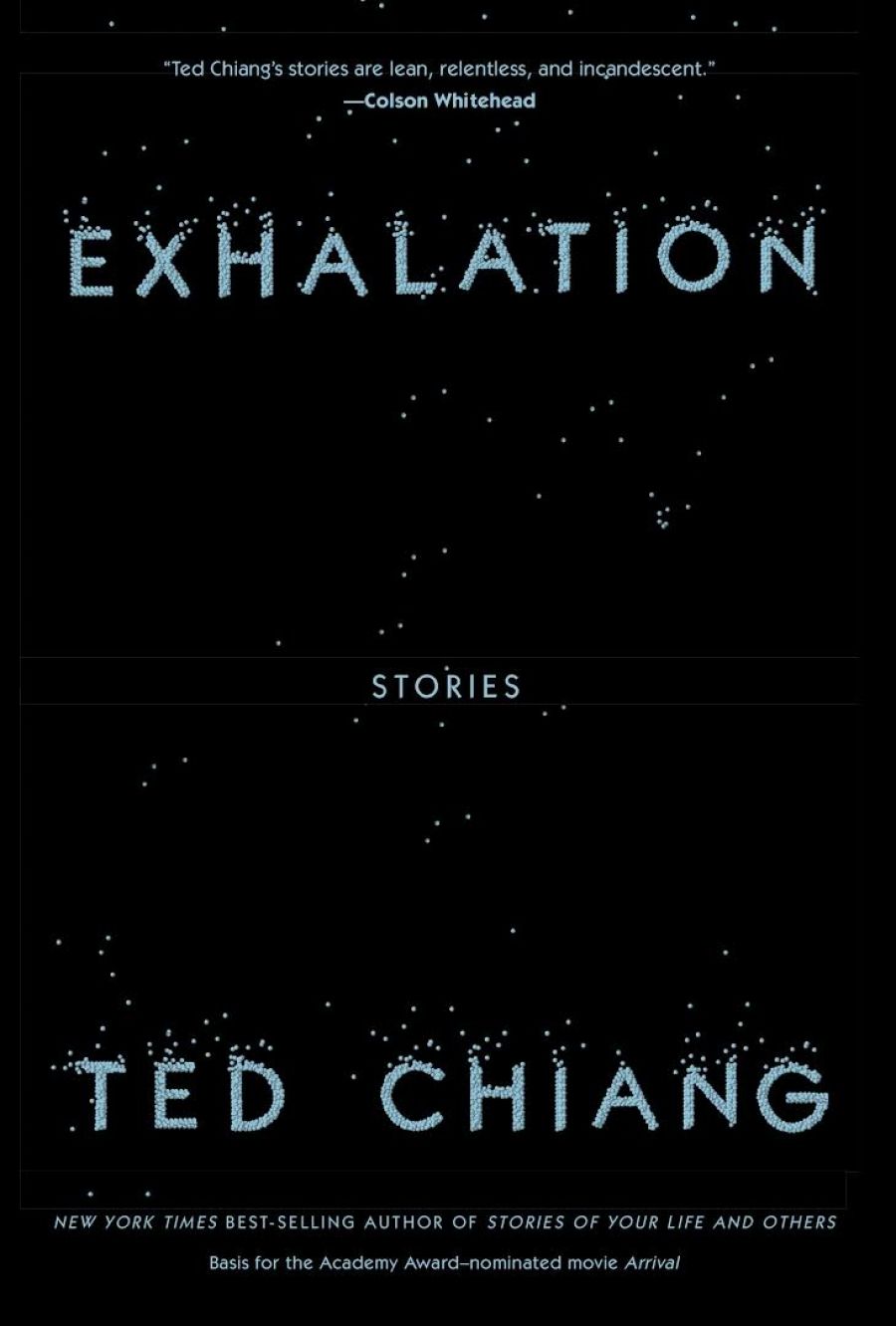
- Free Article: No
- Contents Category: Fiction
- Custom Article Title: Lisa Bennett reviews <em>Exhalation</em> by Ted Chiang
- Review Article: Yes
- Online Only: No
- Custom Highlight Text: Mainstream science fiction is a genre that thrives on quantity as much as quality. Such narratives pose the deepest questions; as Douglas Adams once famously put it, these are stories about Life, the Universe, and Everything. Why publish stand-alone space operas when storylines, character arcs, worlds, and revenues can be elaborated across trilogies?
- Book 1 Title: Exhalation
- Book 1 Biblio: Picador, $29.99 pb, 350 pp, 9781529014518
Ideas seem more important to Chiang than industry expectations. The nine stories collected in Exhalation – seven (award-winning) reprints and two works original to this book – are essentially thought experiments, pieces that often have the tenor, pacing, and voice of fine philosophical essays. Chiang’s tone has been described as calm and matter of fact, his style as non-existent, brutal, and elegantly minimalist. Every piece in Exhalation is certainly frank, carefully considered both in conception and in expression. There is a brief but palpable pause at the end of each sentence in which the author seems to contemplate the perfect combination of words to follow those he’s just written, assessing them logically, as a computer program might, before writing them down. This impression of objectivity – of cool rationality and narratorial distance – heightens the sense that these are works of intellectual rather than fanciful imagination. ‘Omphalos’, for instance, employs the Copernican principle that humans aren’t at the centre of the universe, not to refute ideas of young-earth creationism, but rather to envision what the natural world would have to look like in order to confirm the hypothesis that our planet is of recent origin. In this hypothetical context, ‘Omphalos’ asks, what if science proves that the God who created Earth exists, but that humanity was merely an afterthought He has abandoned?
 Ted Chiang (photograph by Alan Berner/Penguin Random House)
Ted Chiang (photograph by Alan Berner/Penguin Random House)
In barely three pages, ‘What’s Expected of Us’ explores the consequences of discovering, irrefutably, that humans don’t have free will. At greater length, ‘Anxiety Is the Dizziness of Freedom’ flips the script, using the ‘many worlds’ interpretation of quantum mechanics (which imagines our world constantly splitting into infinite versions of itself) to demonstrate that we do indeed have free will, while dramatising the notion that each choice not only diverts the path of our lives, but creates parallel realities in which our other selves may decide to choose differently. Meanwhile, a time machine that obeys Einstein’s theory of relativity in ‘The Merchant and the Alchemist’s Gate’ offers characters the pretense of choice, the semblance of free will – they may walk through a ‘magic’ door in the merchant’s shop basement and walk out that same door in that same basement, but when they do it’s twenty years earlier – yet in this story it’s fate, not free will, that rules their futures no matter what they do in their pasts.
All of the concepts explored in Exhalation could have been written as fascinating academic papers – yet they aren’t. They are played out in nine incredibly engaging narratives with conclusions that are often perfect, which no doubt accounts for their enormous appeal. After all, what is the purpose of science fiction but to situate and interrogate the place of humanity in the past, present, and future; to observe the impact our species has made on this world and to extrapolate what, if anything, comes after if it can no longer sustain us; and, most of all, to take us beyond our own narrow realities, beyond our fallible memories and vulnerable bodies, beyond ourselves, in order to ‘Contemplate the marvel that is existence’. Life, the universe, and everything.


Comments powered by CComment